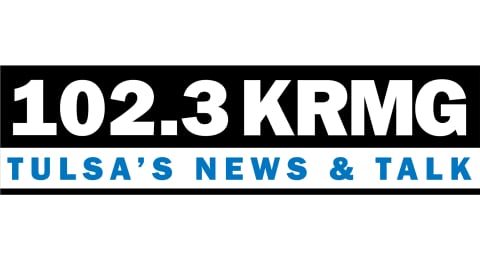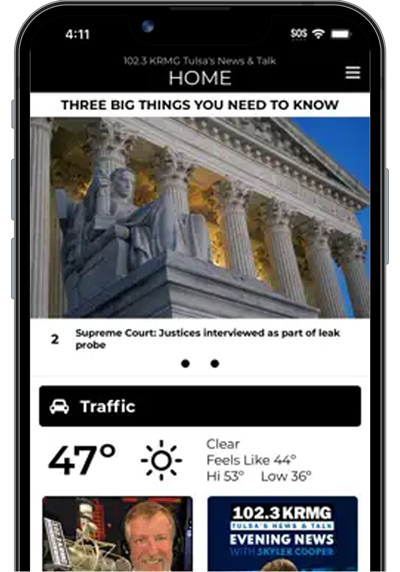Welcome to listening season. As MLB executives assess the free-agent market and work the phones ahead of the winter meetings in early December, there are a lot of players who might or might not be discussed as trade candidates.
What makes a player a trade candidate? Mostly contractual circumstances. Many of the players below are major contributors, but they’re also in line for major paydays, either via their current deals or because they are approaching free agency. Others are simply out of sync with their team’s timeline or spending proclivities, through no fault of their own, and might find themselves on the move because of that misalignment.
Not every name being bandied about as trade bait, however, will actually move. Many teams will choose to keep the star who is already wearing their uniform — or already having his face turned into bobblehead promotions for next year. Below, let's take 10 of the biggest names circulating in the rumor mill and examine the merits of both sides: To trade him or not to trade him?
Juan Soto, San Diego Padres outfielder
The case to trade him: Following a brutally disappointing 2023, the Padres are reportedly seeking to cut their payroll from $255 million to about $200 million. Moving Soto, their blockbuster trade acquisition in August 2022, would be the quickest and most productive way to make progress on that front; in his final year of team control before reaching free agency, Soto is likely to earn a salary of $30 million or more in arbitration. It's unclear how the death of principal team owner Peter Seidler will affect the Padres' plans, but if re-signing Soto appears unlikely or undesirable (his defense has taken a turn for the worse), San Diego might view it as prudent to see how much another contender would give up for a superstar bat in an offseason with few great options behind Shohei Ohtani.
The case to keep him: What if … the Padres are the contenders who could use Soto? Other than the lacking defensive numbers, Soto remains a force. Under the gloom of his team's disappointing 2023 results, Soto put up a .275/.410/.519 slash line, good for the eighth-best overall offensive season in baseball by wRC+. It's virtually impossible to imagine things going as wrong in 2024 as they did in San Diego's mind-boggling 2023, so maybe the Padres should gear up for one last run with Manny Machado, Fernando Tatis Jr., Xander Bogaerts, Ha-Seong Kim and Soto and trust that the odds almost have to be more in their favor.
Corbin Burnes, Milwaukee Brewers starting pitcher
The case to trade him: Burnes, the 2021 NL Cy Young winner, is one of the most bankable pitchers in baseball, ranking second among qualified starters in FanGraphs WAR and fourth in ERA since 2020. Problem is, he might be too bankable for the Brewers at this point. Now without esteemed manager Craig Counsell (who departed for the Chicago Cubs) and longtime rotation-mate Brandon Woodruff (who was non-tendered after shoulder surgery), Milwaukee is trending toward a transitional year, and it seems unlikely Burnes will be around on the other side of the transition.
A year removed from a tense arbitration battle, Burnes is entering his final year of team control and set to make an estimated $15.1 million, per FanGraphs' Roster Resources, with a major payday that figures to approach or exceed $200 million looming next winter if he remains healthy. The Brewers have several promising prospects on the way — headlined by dynamic center fielder Jackson Chourio — but they might view Burnes as a pitcher whose significant talents could bring back a haul to augment that next wave and help them return to contention as soon as 2025.
The case to keep him: Milwaukee under team owner Mark Attanasio has been loathe to pursue full rebuilds. Although the payrolls tend to hover just below MLB average, the club has only once lost 90 games since Attanasio took over in 2005. Keeping Burnes at least to begin the season might be a relatively safe bet: Either the Brewers play well enough to remain atop a murky NL Central that they, notably, won this year, or Burnes is the best arm on the block come July, and they extract a price that rivals what they could get this offseason amid a market flush with starting pitchers.
Dylan Cease, Chicago White Sox starting pitcher
The case to trade him: After two demoralizing, disastrous seasons in a row, the White Sox have undergone a partial regime change, elevating Chris Getz to general manager. This is the portrait of an organization that needs a full rebuild. The major-league team went 61-101 in 2023, and their minor-league affiliates simultaneously racked up the worst combined record in baseball. Cease, two months shy of his 28th birthday and two years from free agency, was the AL Cy Young runner-up in 2022 and possesses the sort of big-time fastball-slider arsenal teams will bet big on.
The case to keep him: The only argument for the White Sox keeping an ace to front a losing team would be the idea that right now they'd be selling relatively low. Cease's 4.58 ERA wasn't pretty last season, though he made 33 starts, and several metrics that typically have more to do with teammates and luck (a high BABIP, a low percentage of runners left on base) could convince potential suitors to pony up anyway.
Luis Robert Jr., Chicago White Sox outfielder
The case to trade him: See Cease, Dylan, but with a more complicated story to tell. Robert, the 26-year-old Cuban center fielder, took huge strides in 2023 — posting his best full season and receiving MVP votes for the first time. Signed through 2025 on a team-friendly, six-year, $50 million deal that also includes club options (mortal locks to be exercised) for 2026 and 2027, Robert would be extremely in demand if the White Sox wanted to accelerate their rebuild. That said, Robert is one of the most aggressive swingers in the league, with plate discipline that has shades of Javy Báez and could lead to similar bouts of crushing inconsistency as he ages.
The case to keep him: He's an exciting All-Star at a premium position, inked at affordable rates through 2027, and he might have more ceiling to unlock. Make him the centerpiece, not the cost of doing business.
Tyler Glasnow, Tampa Bay Rays starting pitcher
The case to trade him: The Rays built in a reason to trade him when they signed Glasnow to a backloaded, two-year deal ahead of 2023. Last season, coming off elbow surgery, he made $5.35 million and fired 120 innings with a solid 3.53 ERA (that's good for a 118 ERA+, or 18% better than the park-adjusted MLB average). This season, he will make $25 million and then hit free agency. If you have followed the Rays at all, you know where this is heading.
The case to keep him: Once again primed to field a team with legitimate postseason aspirations, the Rays will have to seriously consider their pitching depth. Ace Shane McClanahan is out for the season due to Tommy John surgery, and two other key contributors (Jeffrey Springs and Drew Rasmussen) will be attempting to rehab for summer returns. Ever prepared, Tampa Bay has options, but none of them has exhibited Glasnow's capability for dominance.
Shane Bieber, Cleveland Guardians starting pitcher
The case to trade him: The former Cy Young winner is in his final year before hitting free agency, and Cleveland's renowned pitching development machine has a crop of younger arms ready to thrive. Led by AL Rookie of the Year runner-up Tanner Bibee, a group that also includes Gavin Williams and Logan Allen took to the majors with relative aplomb in 2023. Plus, Triston McKenzie will be expected to bounce back after injuries cost him nearly all of the past season. Dealing from a source of strength could help the Guardians address their persistent lack of offensive thump around José Ramirez.
The case to keep him: Bieber missed two months due to elbow inflammation in 2023 and might boost both his trade-deadline stock and the Guardians' chances of contention by coming out with a strong, healthy start in 2024.
Pete Alonso, New York Mets first baseman
The case to trade him: Under new management in David Stearns, the Mets could dangle the sport's preeminent home run hitter — his 192 blasts since 2019 are the most in MLB and 15 ahead of second place — and add to the bevy of future options they began assembling during their quick trade-deadline pivot. Then again, Alonso, a slugging-focused first baseman who will turn 29 this winter and become a free agent next winter, is exactly the sort of traditional star whose profile has not translated so directly to big free-agent deals as teams consider aging curves and projected values in the age of optimization.
The case to keep him: Alonso, a proven performer and willing avatar for a team that exists in a pressurized fishbowl, is probably more valuable to the Mets than to anyone else. Enthusiastic team owner Steve Cohen's swashbuckling spending won over Queens fans, but they could revolt just as quickly if a future-focused strategy discards a homegrown hero.
Gleyber Torres, New York Yankees infielder
The case to trade him: After a rough 2021, Torres reestablished himself as a solidly above-average hitter, batting .266 with 49 homers and a 120 wRC+ the past two seasons. That's very good for a second baseman. It's just not clear that Torres should be a second baseman — at least not for a team trying to squeeze out every last win or a team with prospect Oswald Peraza waiting in the wings. In need of several outfielders and a general athletic infusion, the Yankees could try to engage a club more in need of Torres' flavor of production in his final year of team control.
The case to keep him: Steady bats and healthy muscles aren't exactly luxuries the Yankees can afford to give up right now. An aggressive offseason, on the heels of GM Brian Cashman's aggressive defense of the franchise, could change that, but right now, Torres is clearly the team's second-best position player behind Aaron Judge, and no one in pinstripes has answered the bell more often than Torres the past two years.
Jonathan India, Cincinnati Reds infielder
The case to trade him: Last summer, Cincinnati hosted a parade of exciting prospects who play the infield: Matt McLain, Elly De La Cruz, Christian Encarnacion-Strand, Noelvi Marte, sometimes Spencer Steer. That is … too many infielders before you even consider India, the 2021 NL Rookie of the Year who often found himself in the lineup as designated hitter in 2023, making way for more athletic players at his usual position (second base). Moving India, who is still three full seasons from reaching free agency, could allow the Reds to begin solving their roster imbalance — they have almost no proven pitching — via trades to bring back younger arms that align with their core's timeline.
The case to keep him: An obvious leader and mentor, India could maintain clubhouse consistency for a team that will probably be heading into its first spring training without Joey Votto since the George W. Bush administration.
Mike Trout, Los Angeles Angels outfielder
The case to trade him: Uh, the Angels owe it to Trout to at least attempt to get him to a postseason contender? More rationally: With Shohei Ohtani likely departing for greener pastures and the farm system uninspiring, the Angels are extremely unlikely to field a competitive team in the next few years. Trout is 32 and must be considered a persistent injury risk at this point, having played only 237 games the past three years.
Still, when he plays, he is a world-beating hitter. His 163 wRC+ over that span ranks third among hitters with at least 750 plate appearances, behind only Aaron Judge and Yordan Alvarez. Trout’s contract is also a monster, paying him an average of $35.5 million per year through 2030, but with a little financial creativity, the Angels could have big-market contenders lining up to jumpstart their much-needed rebuilding efforts, however depressing it might be to lose Trout and Ohtani at once.
The case to keep him: For one, this really isn't the Angels' choice to make. Trout has a full no-trade clause and has not expressed a desire to move. Is it impossible to see GM Perry Minasian and new manager Ron Washington cobbling together a surprise contender in the last few years of Trout's physical peak? No, much stranger things have happened. Or, familiar with the dopamine hits that can come from pure individual excellence, the Angels might simply accept their lot in life. Trout is going to the Hall of Fame, and if he wants to do so wearing only an Angels uniform, this constantly underwhelming franchise should applaud and thank him for the privilege.





